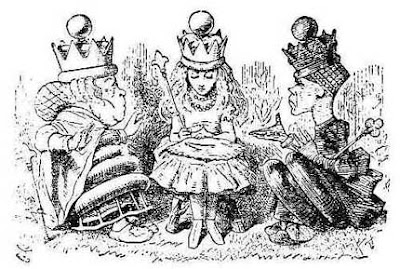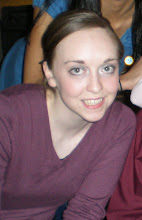Being a strong leader encompasses many different aspects. I have known many leaders, but the ones that I respect the most are those that are passionate about the work they are doing, those that work to earn respect instead of simply demanding it, and those that understand that everyone is human and makes mistakes— including themselves. When I think over the life that I want to lead I have begun to understand that my long term goals cannot be realized without also transforming myself into a strong leader. The person I look up to the most in this respect is my father.
 My father has strong business sense. He is an entrepreneur— a man that believes in himself and never questions his instincts. He is a family man that patterns his life after God’s will and always worries first about providing for my mom, siblings, and I and last about providing for himself. He has years of experience and freely shares the wisdom that it affords him. But at the same time he never shoves this advice at you or demands that you take the path he believes best. He raised my brother, sisters and I to be independent. Not to worry about other people and what they may think, but to do whatever you feel is best for yourself— within the realm of righteous living. We were taught to be courteous of others (especially our elders) and to not tread on the feeling of those who care about us. Out of all of the relationships I value, my father is the person that I would be most proud to emulate. He is my hero and my cheerleader.
My father has strong business sense. He is an entrepreneur— a man that believes in himself and never questions his instincts. He is a family man that patterns his life after God’s will and always worries first about providing for my mom, siblings, and I and last about providing for himself. He has years of experience and freely shares the wisdom that it affords him. But at the same time he never shoves this advice at you or demands that you take the path he believes best. He raised my brother, sisters and I to be independent. Not to worry about other people and what they may think, but to do whatever you feel is best for yourself— within the realm of righteous living. We were taught to be courteous of others (especially our elders) and to not tread on the feeling of those who care about us. Out of all of the relationships I value, my father is the person that I would be most proud to emulate. He is my hero and my cheerleader. When carefully studying my father’s character and his ability to lead without dragging those that follow him, I look at the traits that he possesses and I lack. I find that he has a strong sense of confidence in himself and in his judgment— that he understands and accepts himself and his boundaries, his strengths and his weaknesses. That he is compassionate and sympathetic towards others; he does not judge people based on stereotypical and superficial concepts, and he takes full responsibility for his actions— whether they are good or bad. But the trait that I most admire in my father is that he is a teacher, not is the sense of a vocation but that he shares the knowledge and stories he has gathered throughout his life with others.
The goal that I am most certain of is to become a teacher or professor one day. While this is a vocational goal, I also admire the ability to teach others in everyday life when you are about whatever task you might find yourself— to be a “lifetime teacher.” Because I want to be able to share my passion with others concerning the abuse of children, I have to be able to teach people why this is important. By raising awareness and simply sharing my story, people can become more informed on the subject and learn how to help prevent the abuse in their personal realms of influence.
But to become a teacher and to emulate the qualities that I see in the leaders around me, I must continue to build my character and to educate myself. Thus I enrolled in the Plan II program. According to Newman, the goal of a liberal arts education is the “cultivation of the intellect”[ii] or the construction of the character. The broad based courses required for a Plan II degree open my mind to new ideas and concepts and stretch my understanding of things different from myself. It forces me to try new things and to become a more well rounded person, to stretch my abilities and passions. Thus, ultimately helping me to relate to people that I find myself surrounded by and to become a more compassionate and sympathetic person.

The addition of literature and composition courses is equally important. These courses allow for self-exploration and give me time to delve into the literary accounts of the lives of others and learn from their struggles. May Sarton’s experiment with “aloneness” in the Journal of Solitude[iii] or Alice’s realization in Lewis Carroll’s Through the Looking Glass and What Alice Found There that the position of a queen that she had been so anxious to achieve came with a crown that was actually “very heavy” and “fitted tight”[iv] are excellent examples of knowledge that can be gleaned from both fiction and non-fiction accounts. On the opposite end of the spectrum, the business courses that I am enrolled in help me to develop the skills necessary to succeed in today’s world; almost everything is somehow related to business and commerce. A basic understanding of these concepts will help me to succeed in anything I choose to pursue as well as teach me to be a leader in the business world that I want to work in before becoming a teacher.
Outside of the classroom, extracurricular activities are also important to the development of leadership skills. In Senate of College Councils, I am surrounded by peers that are all diverse  with different agendas and goals. Working in this diverse atmosphere to accomplish a common goal is a test of everyone’s abilities. Being involved in clubs gives me a chance to meet different people and make friends with fellow young leaders that are dedicated to making a difference in the world and in UT while we are here. This is the atmosphere where I am allowed to test out the leadership skills that I am learning in the classroom. This “testing ground” is integral to the learning process.
with different agendas and goals. Working in this diverse atmosphere to accomplish a common goal is a test of everyone’s abilities. Being involved in clubs gives me a chance to meet different people and make friends with fellow young leaders that are dedicated to making a difference in the world and in UT while we are here. This is the atmosphere where I am allowed to test out the leadership skills that I am learning in the classroom. This “testing ground” is integral to the learning process.
 with different agendas and goals. Working in this diverse atmosphere to accomplish a common goal is a test of everyone’s abilities. Being involved in clubs gives me a chance to meet different people and make friends with fellow young leaders that are dedicated to making a difference in the world and in UT while we are here. This is the atmosphere where I am allowed to test out the leadership skills that I am learning in the classroom. This “testing ground” is integral to the learning process.
with different agendas and goals. Working in this diverse atmosphere to accomplish a common goal is a test of everyone’s abilities. Being involved in clubs gives me a chance to meet different people and make friends with fellow young leaders that are dedicated to making a difference in the world and in UT while we are here. This is the atmosphere where I am allowed to test out the leadership skills that I am learning in the classroom. This “testing ground” is integral to the learning process.As I attend this university and learn how to apply leadership skills and the ability to teach to my everyday life I am sculpting myself into the type of person that I ultimately want to be. By teaching others the effects of abuse and advocating for those who have lost their innocence I fulfill my passion in life. As a victim, by helping myself become a strong leader and successful person I can provide inspiration to those who have been hurt and lead others to help in the fight against the sexual abuse of children.
_________________
[i] Myers-Briggs Personality Test Descriptions, http://www.keirsey.com/handler.aspx?s=keirsey&f=%20fourtemps&tab=2&c=overview
[ii] Newman, “From Idea of a University” in vol.1, The Composition and Reading in World Literature Anthology, ed. Jerome Bump (Austin: Jenn’s Copy and Binding, 2008) 319
[iii] May Sarton, Journal of Solitude (New York: Norton, 1992)
[iv] Lewis Carroll, Through the Looking Glass and What Alice Found There in The Annotated Alice, annotated by Martin Gardner (New York, Norton, 2000) 248
[ii] Newman, “From Idea of a University” in vol.1, The Composition and Reading in World Literature Anthology, ed. Jerome Bump (Austin: Jenn’s Copy and Binding, 2008) 319
[iii] May Sarton, Journal of Solitude (New York: Norton, 1992)
[iv] Lewis Carroll, Through the Looking Glass and What Alice Found There in The Annotated Alice, annotated by Martin Gardner (New York, Norton, 2000) 248
